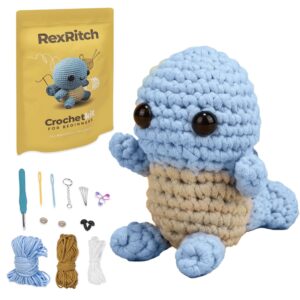During the chilly winter months, there’s nothing quite like snuggling up under a cozy crochet blanket. Whether you’re a beginner looking to learn a new skill or an experienced crocheter searching for your next project, creating your own blanket is a rewarding and enjoyable process. In this article, we’ll explore the art of crocheting a beautiful and practical blanket, guiding you through each step to help you create a cherished keepsake that will keep you warm for years to come. So grab your crochet hook and yarn, and let’s get started!
Choosing the Right Yarn for Your Crochet Blanket Project
When it comes to crocheting a blanket, choosing the right yarn is essential to ensure the success of your project. The type of yarn you select can affect the overall look, feel, and durability of your blanket. Here are some tips to help you choose the perfect yarn for your crochet blanket project:
– Consider the yarn weight: The weight of the yarn will determine how thick or thin your blanket will be. **Choose a yarn weight that suits the kind of blanket you want to create.** For a lightweight and airy blanket, opt for a fingering or sport weight yarn. For a warmer and chunkier blanket, go for a bulky or super bulky weight yarn.
– Think about the fiber content: The type of fiber used in the yarn can also impact the look and feel of your blanket. **Consider factors such as warmth, softness, and durability when choosing the fiber content.** Wool yarns are known for their warmth and elasticity, making them great for cozy blankets. Cotton yarns are breathable and easy to care for, making them ideal for lightweight blankets.
– Check the yardage and skein size: Make sure to **calculate the total yardage needed for your blanket project** and choose yarn skeins accordingly. If you’re using multiple skeins of the same color, **try to buy them from the same dye lot to ensure consistency in color** throughout your blanket. Keep in mind that larger skeins can result in fewer ends to weave in as you work on your project.
By taking these factors into consideration, you can confidently choose the right yarn for your crochet blanket project and create a beautiful and cozy masterpiece to enjoy for years to come. Experiment with different yarns and textures to add a personal touch to your blanket and make it truly one-of-a-kind.
Selecting the Ideal Crochet Hook Size for Your Blanket
When it comes to crocheting a blanket, selecting the ideal crochet hook size is crucial for achieving the desired outcome. The right hook size will not only determine the size and texture of your blanket but also affect the overall look and feel of the finished product. Here are some tips to help you choose the perfect hook size for your next blanket project:
Consider the yarn weight: The weight of the yarn you are using will play a significant role in determining the appropriate hook size. For example, if you are working with a super bulky yarn, you will likely need a larger hook size to create a loose, chunky blanket. On the other hand, if you are using a lightweight yarn, a smaller hook size will produce a tighter, more intricate design.
Experiment with different hook sizes: Don’t be afraid to try out a few different hook sizes before settling on the perfect one for your blanket. Use a swatch to test different hook sizes and see which one produces the desired tension and texture. Sometimes, a slight adjustment in hook size can make a significant difference in the overall look of your blanket.
Mastering Basic Crochet Stitches for a Beautiful Blanket
One of the most important skills to master when crocheting a beautiful blanket is understanding basic crochet stitches. By familiarizing yourself with these stitches, you can create a stunning and custom-made blanket that showcases your creativity and craftsmanship. Here are some essential crochet stitches to help you get started on your blanket-making journey:
Single Crochet: This foundational stitch is easy to learn and creates a tight, dense fabric that is perfect for blankets. It is essential in creating a sturdy foundation for your blanket project.
Double Crochet: The double crochet stitch is versatile and allows for a faster completion of your blanket. It creates a taller stitch, adding height to your project and giving it a light and airy feel.
Half Double Crochet: A midpoint between the single and double crochet, the half double crochet stitch strikes a balance between density and height. It creates a beautiful texture that is ideal for blanket patterns with intricate designs.
Creating Intricate Patterns and Designs in Your Crochet Blanket
Crocheting a blanket can be a fun and rewarding project, especially when you incorporate intricate patterns and designs. By using different stitches and techniques, you can create a one-of-a-kind blanket that will be treasured for years to come.
One way to add complexity to your crochet blanket is by using a variety of stitch patterns. You can mix and match different stitches, such as the bobble stitch, popcorn stitch, or shell stitch, to create interesting textures and designs. Consider incorporating lace patterns for a delicate and elegant look, or opt for bold geometric designs for a modern twist.
Another way to elevate your crochet blanket is by adding colorwork. You can create stripes, chevron patterns, or even intricate motifs using a combination of colors. Experiment with different color combinations to create a visually stunning blanket that reflects your personal style and creativity.
Finishing Touches: Blocking and Edging Your Crochet Blanket
Once you have completed crocheting the main body of your blanket, it’s time to add those finishing touches to make it truly stand out. Blocking and edging are two essential steps that will enhance the appearance of your crochet masterpiece.
Blocking:
Blocking involves wetting your finished blanket and then laying it out flat to dry in order to shape and set the stitches. This process helps to even out any uneven tension and ensure that your blanket lays flat. Blocking can also help to enhance the drape and overall look of your blanket.
Edging:
Adding an edging to your blanket provides a polished, finished look. There are countless edging options to choose from, including picot, shell, and scallop edgings. Choose an edging that complements the style of your blanket and adds a decorative touch.
Final Thoughts
As you wrap up your final row and admire the masterpiece you’ve created, take a moment to appreciate the time and effort that went into crocheting your very own blanket. Whether it’s a gift for a loved one or a cozy addition to your own home, the sense of accomplishment that comes with completing such a project is truly rewarding. So, grab your yarn and hook, and let your creativity run wild as you continue to craft beautiful blankets to keep you warm and cozy for years to come. Happy crocheting!



